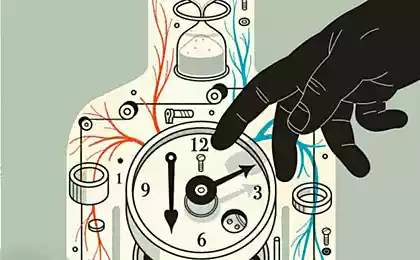174
Time to get rid of time zones and switch to local time
Time zones are a relatively recent invention. They date from the 19th century and were designed to meet the needs of the then-new rail industry.
They were a good idea at the time, but in the modern world, they cause more problems than good. Time zones have a bad effect on the human body and are an obstacle to doing business.
History of the clock
In ancient Rome, there were only twelve hours a day. The clock filled 1/12th of the daylight and varied depending on the season. The summer hours not only felt bigger, they actually were. This became a barrier to the creation of clocks, but it meant that Roman organisms lived in synchronization with the sun.
Then in the 14th century, with the development of water and mechanical clocks, time was divided into night, giving us 24 hours at the same time. However, noon was local and each city had its own time. It was calculated when the sun was directly overhead at noon. (It is interesting that in Transcarpathia and now there is Kiev and local time).
That all changed in the 19th century, when the world began to develop transcontinental rail transport. Then a telegraph appeared in each city and it turned out that everywhere different times and it interferes with the work of trains on schedule.
For the convenience of trains, the world was divided into 24 equal pieces (time zones). To the detriment of our biological clock, we began to live by rail.
We are still suffering from this division. It's a real problem.
You can experiment with a solar calculator and determine how much your time corresponds to the sun. And if it's noon in your city, it should be noon, not 11:35 or 12:40.
One Spanish study found that when stranded in the German time zone, Spaniards suffer from:
On average, Spanish workers sleep one hour less than their European counterparts, and an hour less than the World Health Organization recommends. As a result, productivity is lower and work accidents and absenteeism are higher than the EU average.
So why not just schedule everything in UTC (universal coordinated time)?
One time for everyone
The Swatch Time project developed Internet time to avoid thinking about time zones. The day was divided into 1000 beats (for example, the article was written in 219 .beats over Internet time). This time is the same all over the world. Now you can live freely on local time, and all meetings are scheduled over Internet hours to avoid confusion of time zones.
Source: rodovid.me
They were a good idea at the time, but in the modern world, they cause more problems than good. Time zones have a bad effect on the human body and are an obstacle to doing business.
History of the clock
In ancient Rome, there were only twelve hours a day. The clock filled 1/12th of the daylight and varied depending on the season. The summer hours not only felt bigger, they actually were. This became a barrier to the creation of clocks, but it meant that Roman organisms lived in synchronization with the sun.
Then in the 14th century, with the development of water and mechanical clocks, time was divided into night, giving us 24 hours at the same time. However, noon was local and each city had its own time. It was calculated when the sun was directly overhead at noon. (It is interesting that in Transcarpathia and now there is Kiev and local time).
That all changed in the 19th century, when the world began to develop transcontinental rail transport. Then a telegraph appeared in each city and it turned out that everywhere different times and it interferes with the work of trains on schedule.
For the convenience of trains, the world was divided into 24 equal pieces (time zones). To the detriment of our biological clock, we began to live by rail.
We are still suffering from this division. It's a real problem.
You can experiment with a solar calculator and determine how much your time corresponds to the sun. And if it's noon in your city, it should be noon, not 11:35 or 12:40.
One Spanish study found that when stranded in the German time zone, Spaniards suffer from:
On average, Spanish workers sleep one hour less than their European counterparts, and an hour less than the World Health Organization recommends. As a result, productivity is lower and work accidents and absenteeism are higher than the EU average.
So why not just schedule everything in UTC (universal coordinated time)?
One time for everyone
The Swatch Time project developed Internet time to avoid thinking about time zones. The day was divided into 1000 beats (for example, the article was written in 219 .beats over Internet time). This time is the same all over the world. Now you can live freely on local time, and all meetings are scheduled over Internet hours to avoid confusion of time zones.
Source: rodovid.me
Saturated fats in dairy products may reduce the risk of type 2 diabetes
Sociologists— have girls pretend to be stupid























